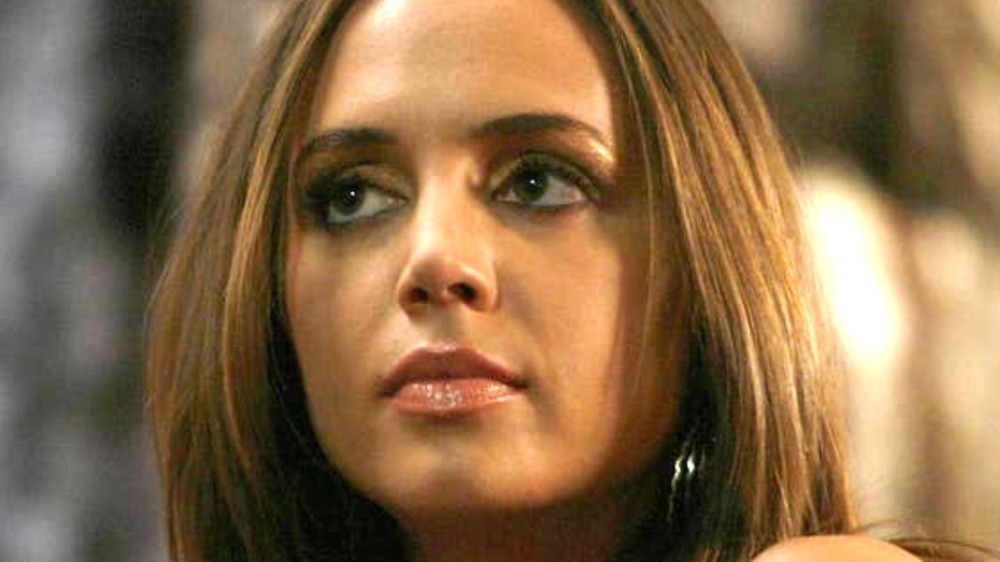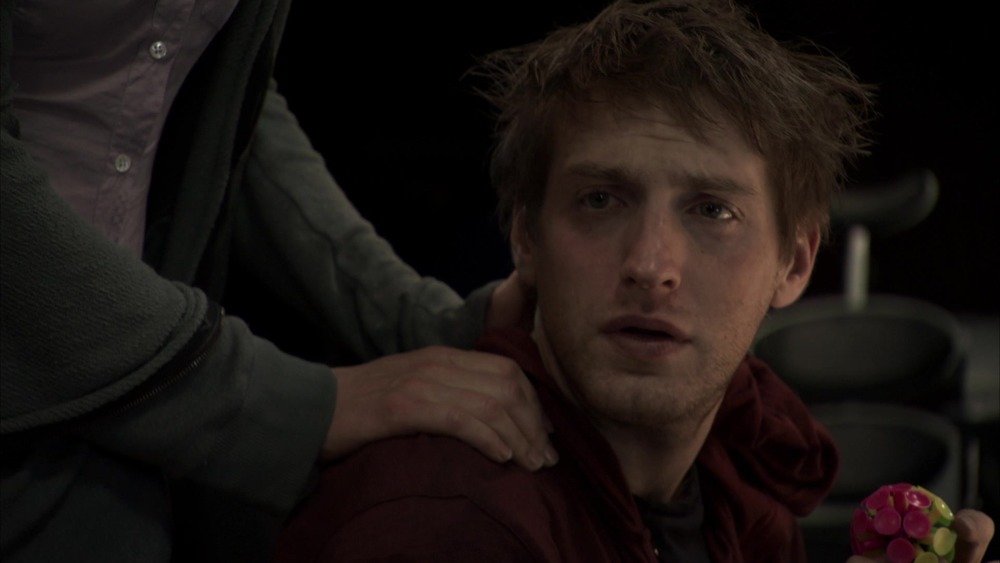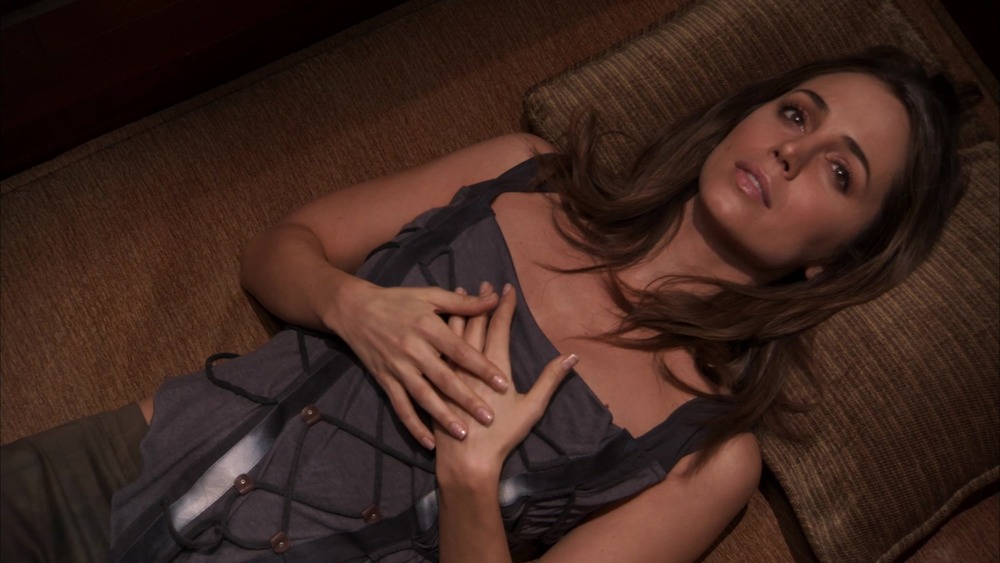The Ending Of Dollhouse Explained
As a show, Dollhouse never fully found its footing. The Joss Whedon-helmed Fox series premiered in February 2009 and was swiftly canceled after just two short seasons in January 2010. Still, despite its failure to fully reckon with the consent issues at the heart of its premise, Dollhouse's final episodes did explore the intersection of technology and identity in an interesting way.
The series finale jumped forward in time 10 years to the year 2020, at which point Echo (Eliza Dushka) has become a fully realized person and the leader of a group of "actuals" — people who haven't had their minds wiped. Meanwhile, most of the population has been wiped and turned into dangerous zombies controlled by what's left of the Rossum Corporation. That leaves Echo, Paul (Tahmoh Penikett), Sierra (Dichen Lachman), Adelle (Olivia Williams), Victor (Enver Gjokaj), and a handful of other survivors in charge of restoring the world to its natural order, which is something they can only achieve with the help of Topher (Fran Kranz). Unfortunately, the architect of Rossum's technology has had a mental breakdown after being forced to watch innocent people die in front of him every day.
While the first half of the episode, entitled "Epitaph Two: Return," is devoted to Echo's team rescuing Topher — which leads to Paul dying in the line of duty — the second half settles into a more meditative mode, as Topher and Adelle reckon with what their work with Rossum has wrought on the world. Dollhouse was always at its best when it confronted the horrifying implications of human beings being used as playthings for the wealthy head on, and it's to the show's credit that much of the finale centers on two of the most culpable characters, Adelle and Topher, attempting to make amends.
Topher sacrifices himself for the sake of the world in the final episode of Dollhouse
After spending most of the series as an arrogant, geeky genius, Topher is forced to face the fact that the technology he created has destroyed the world and countless lives. The weight of this reality contributes to his mental collapse, but it also leads him to the realization that he has to sacrifice himself to reverse the mind wipe technology Rossum used to zombify most of the Earth's population. He deduces that a bomb must be manually detonated from a high point in order to send out a signal strong enough to cover the world and restore everyone's memories.
When he first introduces his idea to Adelle, she's reluctant for him to sacrifice himself, but Topher also knows as long as he's alive, his mind can be used as a weapon by the remaining members of the Rossum corporation. Ultimately, she agrees to his plan, and promises she'll devote the rest of her life to restoring order to the post-apocalyptic world that their work for the corrupt corporation created.
In this way, both Adelle and Topher pay a price for the role they played in creating and nurturing the doll technology which Rossum used to strip people of their identities and autonomy.
Dollhouse ends with Echo retaining her selfhood even after everyone's personalities are restored
The thorniest issue that Dollhouse mostly side-stepped was the repercussions of what would happen once all of the "dolls" had their original personalities restored. This event would surely have led to a huge emotional fallout, and it also meant many characters would lose the identities they cultivated for themselves in the 10 years of wartime following the wipe (unless they opted to stay underground in the Los Angeles base for a year).
For Echo, restoring her original personality was never a real possibility due to the unique way she gained awareness as an autonomous person. In the end, the series opts to give her a sort of peace after everything she sacrificed while leading the resistance against Rossum. During the show's final moments, she finds a gift from Alpha (Alan Tudyk): A hardcopy of Paul's mind, which she uploads into her own head, allowing her true love to live alongside her in her dreams forever.
In many ways, "Epitaph Two: Return" hints at a far more interesting show — one that could have chronicled the apocalyptic period during which Topher's technology was weaponized against the entirety of the world instead of individuals. But it also works as a finale to what was always a fascinating series, albeit one that could have done a more effective job of exploring its dark premise had it not been on network TV in the late '00s.


